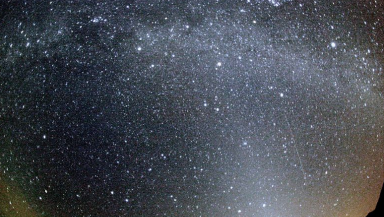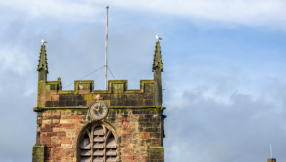
Scientists recently discovered a mammoth black hole that was formed when the universe was only six per cent of its current age.
The discovery is particularly significant because black holes are thought to form very slowly over time.
"How do you build such a big black hole in such a short time?" Xue-Bing Wu of China's Peking University asked. Wu was lead author of the study published Wednesday in the journal Nature.
The black hole is equivalent to the weight of 12 billion suns, and was formed just 875 million years after the universe began.
Black holes are the cores of luminous quasars that glow from the attraction of matter into the black hole.
"This is the biggest monster we've ever detected in terms of luminosity," said Avi Loeb, chair of the Harvard astronomy department, of Wu's find.
The quasar was discovered using telescopes in China, Hawaii, Arizona, and Chile, and is about 40,000 times brighter than the Milky Way. The researchers named it SDSS J010013.021280225.
Analysis determined that the quasar has been travelling towards the earth for about 12 billion years, and is one of the largest that scientists have seen.
"We've seen other quasars from this period," Wu explained, "but none of them has a mass of more than three billion times that of the sun."
This black hole may have been formed from the universe's earliest gases and stars, and the stars would have been enormous as well.
"Galaxies were up to a thousand times denser than they are today," Loeb said, and the stars could have had masses a hundred times that of the sun.
Other scientists theorised that two or more galaxies may have merged, and their black holes became one. Or, the first stars may have had as many as a million suns that, if collapsed, could form massive black holes.
"We've never seen one," Loeb said of the theoretical super stars. "But with the James Webb Space Telescope, we just might." The NASA observatory is scheduled to go into orbit in 2018.













